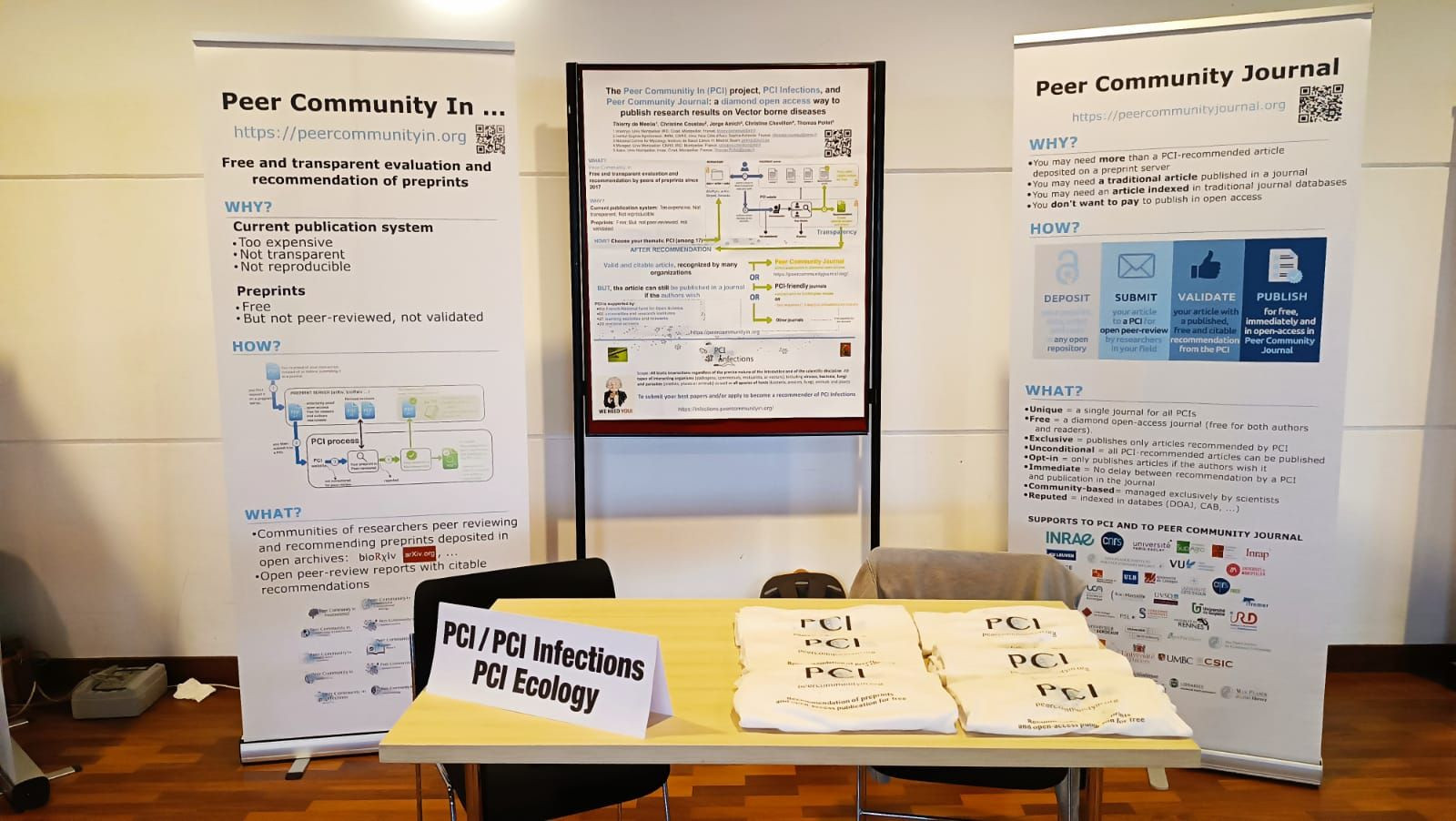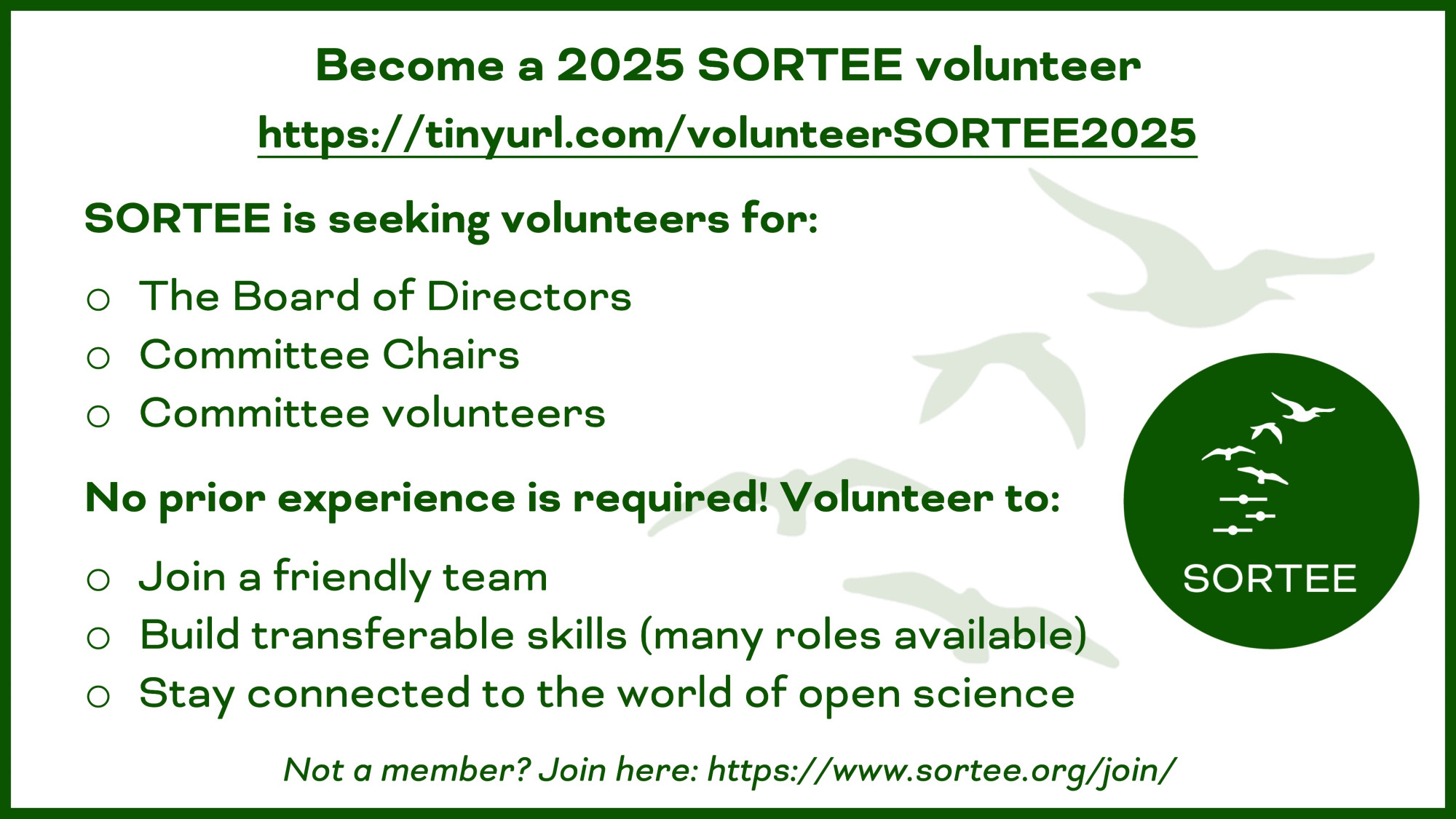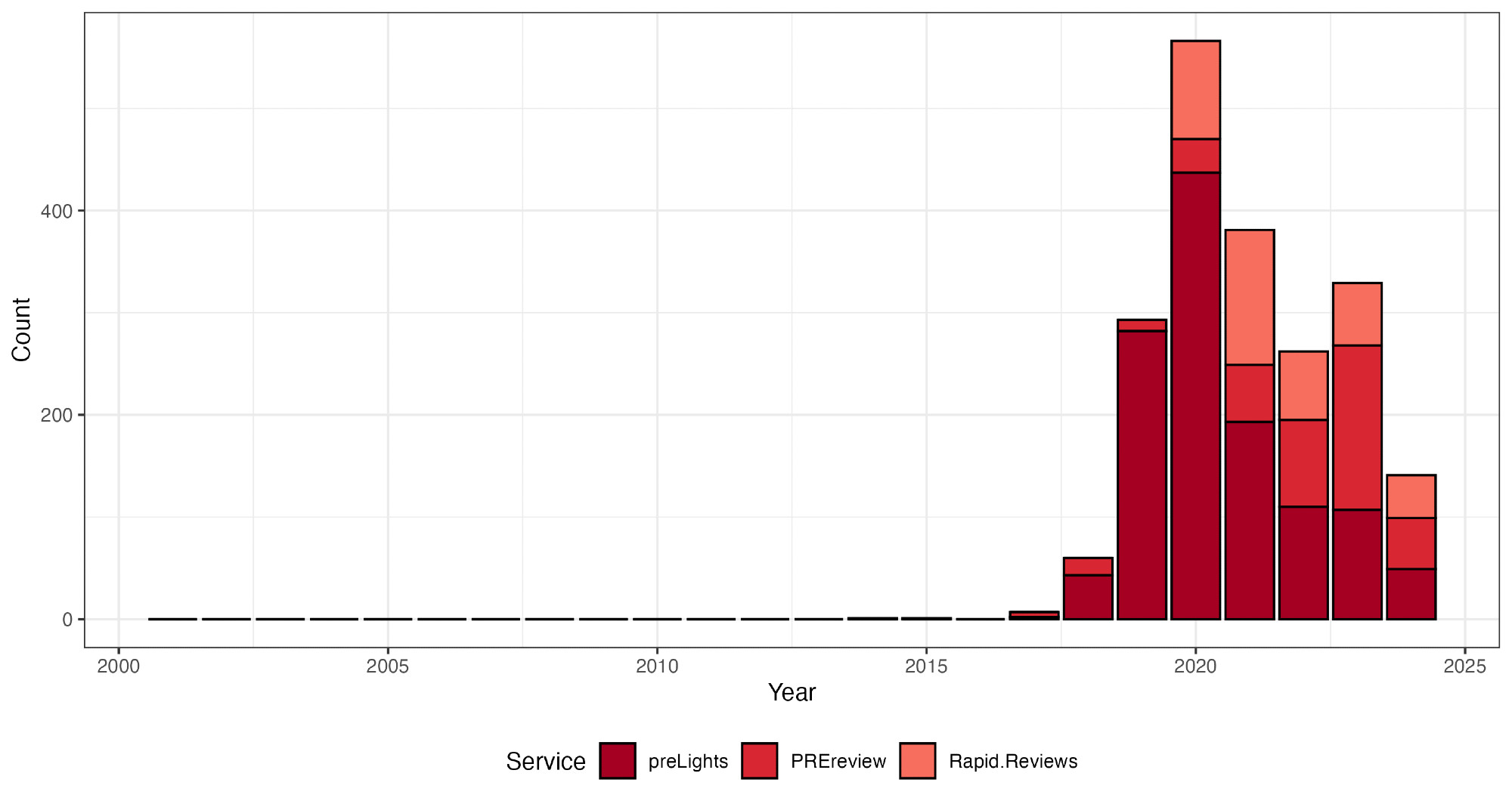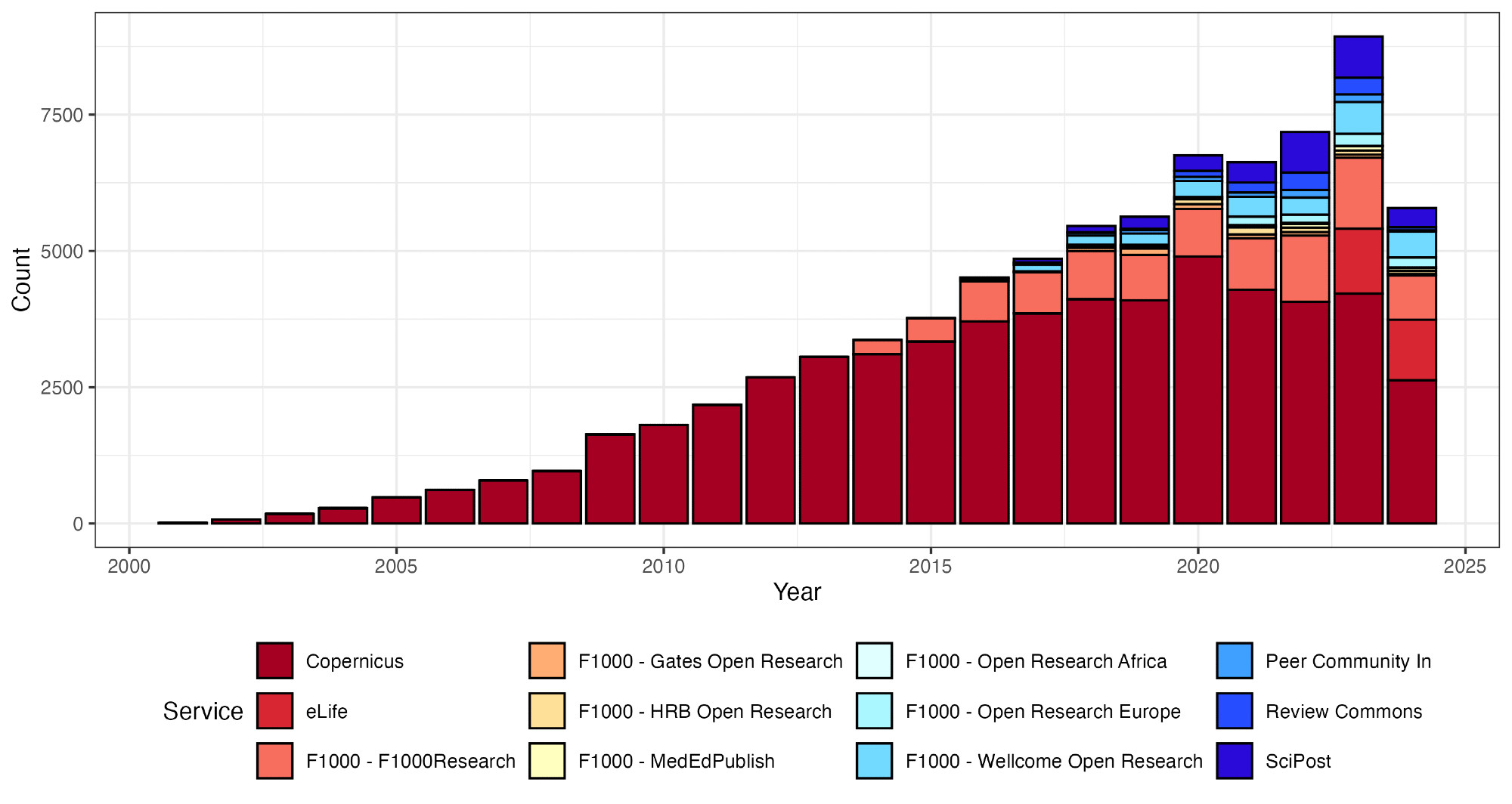Peer Community In and Peer Community Journal are at the 23rd European Society for Vector Ecology Conference #ESOVE#openscience!

Warum nicht 20 punkte für dem Hund? Er ist doch GELB!! Also who is drinking spirits out of the Adventure Time mug 😂
SORTEE is seeking volunteers, old and new, to help promote open science next year. No experience necessary; there are many types of roles available across 10 different committees. Get your nominations in by 30 October, and please share widely! tinyurl.com/volunteerSOR...

Form link isn't working for me - but here are ASAPbio's details: linktr.ee/ASAPbio
Special thanks to coauthors Ludo Waltman and @jacoates.bsky.social@asapbio.bsky.social#preprints#ResearchPublishing
We invite you to check out the full explainer, published on MetaArXiv to learn more: osf.io/preprints/me...doi.org/10.1371/jour...doi.org/10.21428/6ff...
PRC is not limited to all-in-one platforms. Decentralized review services like PREreview, preLights, and Rapids Reviews\Infectious Diseases are also taking off.

The model has already had substantial uptake, and it is beginning to grow more rapidly, with platforms like Copernicus, eLife, and others leading the charge.

The PRC model supports decentralization by design, with different services executing different parts of the scholarly communication process. This provides a big opportunity for innovation and iterating on the traditional publishing process.
In the review stage, reviewers transparently evaluate the research artifact and provide feedback. In the curate stage, research artifacts are compiled into collections, and they may have summary judgements or evaluations applied to them.